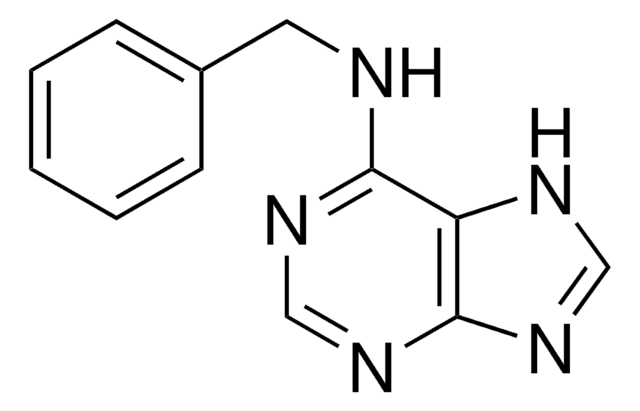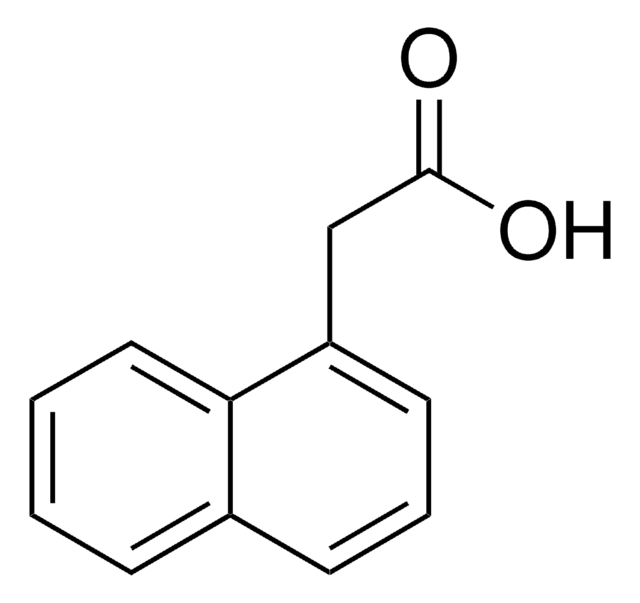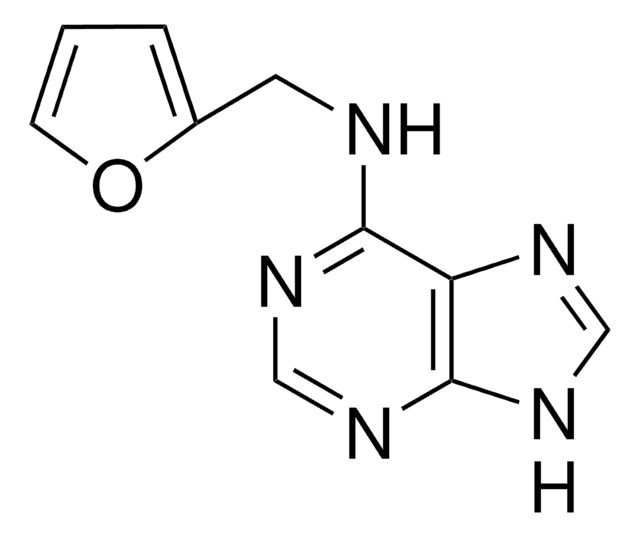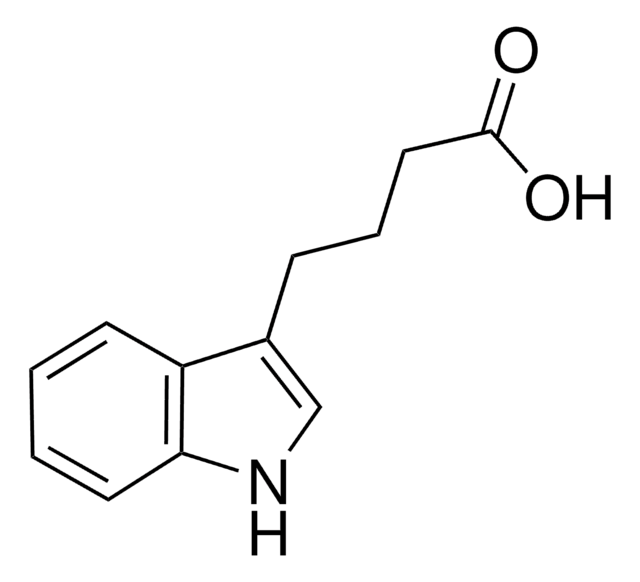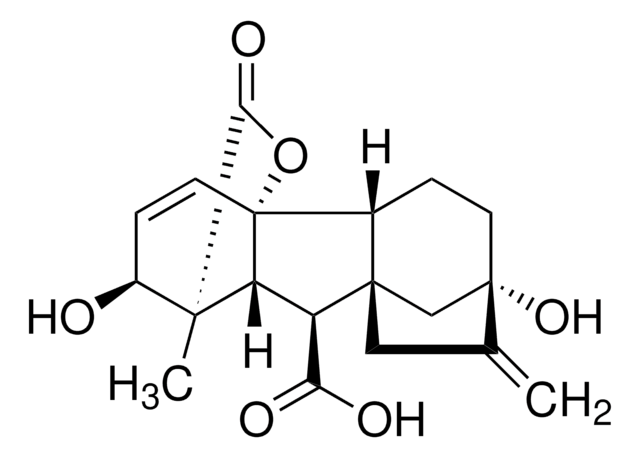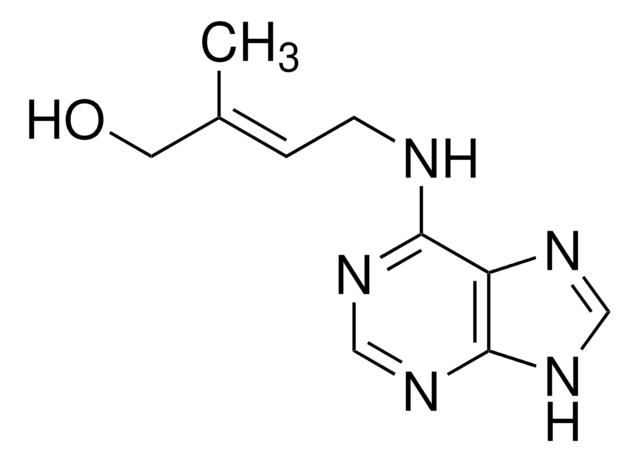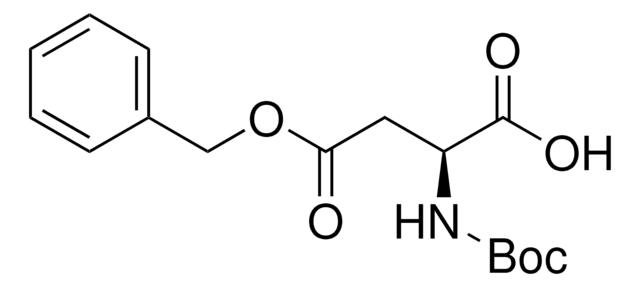I5386
Indole-3-butyric acid
BioReagent, suitable for plant cell culture
Synonym(s):
4-(3-Indolyl)butanoic acid, 4-(3-Indolyl)butyric acid, IBA
About This Item
Recommended Products
product line
BioReagent
Quality Level
technique(s)
cell culture | plant: suitable
application(s)
agriculture
storage temp.
2-8°C
SMILES string
OC(=O)CCCc1c[nH]c2ccccc12
InChI
1S/C12H13NO2/c14-12(15)7-3-4-9-8-13-11-6-2-1-5-10(9)11/h1-2,5-6,8,13H,3-4,7H2,(H,14,15)
InChI key
JTEDVYBZBROSJT-UHFFFAOYSA-N
Looking for similar products? Visit Product Comparison Guide
Application
Preparation Note
Related product
signalword
Danger
hcodes
Hazard Classifications
Acute Tox. 3 Oral
Storage Class
6.1C - Combustible acute toxic Cat.3 / toxic compounds or compounds which causing chronic effects
wgk_germany
WGK 3
flash_point_f
Not applicable
flash_point_c
Not applicable
ppe
Eyeshields, Faceshields, Gloves, type P2 (EN 143) respirator cartridges
Certificates of Analysis (COA)
Search for Certificates of Analysis (COA) by entering the products Lot/Batch Number. Lot and Batch Numbers can be found on a product’s label following the words ‘Lot’ or ‘Batch’.
Already Own This Product?
Find documentation for the products that you have recently purchased in the Document Library.
Customers Also Viewed
Our team of scientists has experience in all areas of research including Life Science, Material Science, Chemical Synthesis, Chromatography, Analytical and many others.
Contact Technical Service